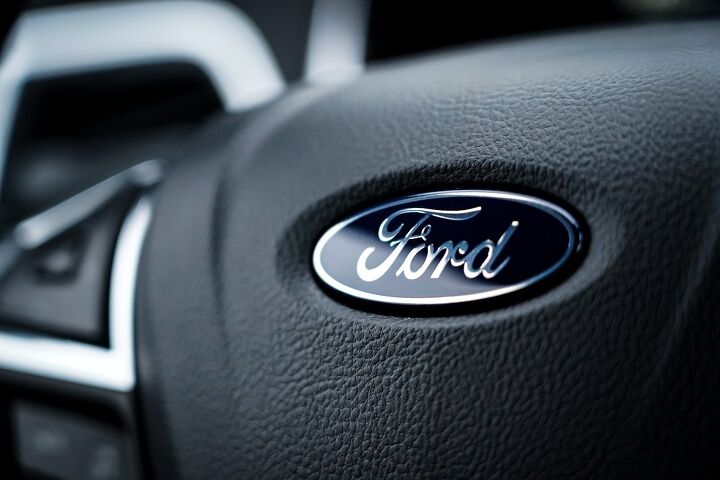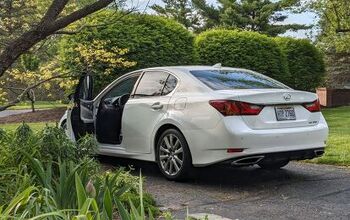Report: Ford CEO Says China Strategy Changing

Ford Motor Company is tweaking plans in China and seeking to turn around financial losses after five years of lackluster sales within the region. The new strategy will be focused on exporting to other countries, commercial product, and reinforcing the necessary supply chain for all-electric vehicles.
CEO Jim Farley has reportedly returned from Asia to finalize those plans, which were reiterated during a press call about Ford’s first-quarter earnings held earlier in the week. According to Automotive News, the executive stated that China would remain important to the company. But that the businesses would need to focus on sectors that would yield the highest return on investment. So far, direct sales haven’t been a part of that.
But it doesn’t appear to be for a lack of trying. Ford has introduced new models specifically designed to cater to Chinese customers. Still, Changan Ford (the automaker’s regional joint venture) only held 1 percent of all Chinese light-vehicle sales in 2022 vs the 4 percent it managed to snag in 2016.
The business lost $572 million in China last year. Sadly, it will be harder to determine how it’s doing moving forward because Ford doesn’t intend on breaking down earnings by geographic location anymore. Like many manufacturers, it has also streamlined its sales reporting to a point where the resulting data borders on useless.
Ah, transparency.
"We're not going to try to serve everyone," Farley said on Tuesday. "It will be a lower investment, leaner, much more focused business in China."
From Automotive News:
Farley cited the company's joint venture partnership with Jiangling Motors Group as an example of what it will do moving forward, with plans to use Chinese operations as "export hubs" for affordable EVs and commercial vehicles to markets such as South America, Australia and Mexico.
Last month, the company announced the next-generation Lincoln Nautilus for North America would be exported from China, a first for Lincoln. Executives have said the luxury brand is profitable in China.
Asia has historically proven to be a slippery fish for American automakers. Japan has long seemed impervious to U.S. products, despite having been so heavily influenced by American culture following the 1940s.
But things have been a little different in China. While the country has been incredibly strict on vehicle importation and often required foreign businesses to engage in partnerships with local firms, American brands do exist there. Some brands (e.g. Buick and Cadillac) have even done quite well for themselves. However, similar to Japan, it’s the German brands that seem to be getting the most love.
Ford has been trying to make China work for years. But robust sales within the region have not manifested, making its decision to revamp operations unsurprising.
That said, leadership continues to claim that the market (which is now the world’s largest) will remain incredibly important. There are just too many potential buyers and China is aggressively pushing toward electrification and basically owns the global market in terms of battery production.
"We believe that not only is it the biggest EV market in the world, but customers digitally are ahead of the rest of the world, and so it's a really important market for us," said Farley. "And what we really see in our presence there is battery tech, digital experiences for the customer and advanced product, both software and hardware integrated."
[Image: Nick Shoe/Shutterstock]
Become a TTAC insider. Get the latest news, features, TTAC takes, and everything else that gets to the truth about cars first by subscribing to our newsletter.

A staunch consumer advocate tracking industry trends and regulation. Before joining TTAC, Matt spent a decade working for marketing and research firms based in NYC. Clients included several of the world’s largest automakers, global tire brands, and aftermarket part suppliers. Dissatisfied with the corporate world and resentful of having to wear suits everyday, he pivoted to writing about cars. Since then, that man has become an ardent supporter of the right-to-repair movement, been interviewed on the auto industry by national radio broadcasts, driven more rental cars than anyone ever should, participated in amateur rallying events, and received the requisite minimum training as sanctioned by the SCCA. Handy with a wrench, Matt grew up surrounded by Detroit auto workers and managed to get a pizza delivery job before he was legally eligible. He later found himself driving box trucks through Manhattan, guaranteeing future sympathy for actual truckers. He continues to conduct research pertaining to the automotive sector as an independent contractor and has since moved back to his native Michigan, closer to where the cars are born. A contrarian, Matt claims to prefer understeer — stating that front and all-wheel drive vehicles cater best to his driving style.
More by Matt Posky
Latest Car Reviews
Read moreLatest Product Reviews
Read moreRecent Comments
- Slavuta Autonomous cars can be used by terrorists.
- W Conrad I'm not afraid of them, but they aren't needed for everyone or everywhere. Long haul and highway driving sure, but in the city, nope.
- Jalop1991 In a manner similar to PHEV being the correct answer, I declare RPVs to be the correct answer here.We're doing it with certain aircraft; why not with cars on the ground, using hardware and tools like Telsa's "FSD" or GM's "SuperCruise" as the base?Take the local Uber driver out of the car, and put him in a professional centralized environment from where he drives me around. The system and the individual car can have awareness as well as gates, but he's responsible for the driving.Put the tech into my car, and let me buy it as needed. I need someone else to drive me home; hit the button and voila, I've hired a driver for the moment. I don't want to drive 11 hours to my vacation spot; hire the remote pilot for that. When I get there, I have my car and he's still at his normal location, piloting cars for other people.The system would allow for driver rest period, like what's required for truckers, so I might end up with multiple people driving me to the coast. I don't care. And they don't have to be physically with me, therefore they can be way cheaper.Charge taxi-type per-mile rates. For long drives, offer per-trip rates. Offer subscriptions, including miles/hours. Whatever.(And for grins, dress the remote pilots all as Johnnie.)Start this out with big rigs. Take the trucker away from the long haul driving, and let him be there for emergencies and the short haul parts of the trip.And in a manner similar to PHEVs being discredited, I fully expect to be razzed for this brilliant idea (not unlike how Alan Kay wasn't recognized until many many years later for his Dynabook vision).
- B-BodyBuick84 Not afraid of AV's as I highly doubt they will ever be %100 viable for our roads. Stop-and-go downtown city or rush hour highway traffic? I can see that, but otherwise there's simply too many variables. Bad weather conditions, faded road lines or markings, reflective surfaces with glare, etc. There's also the issue of cultural norms. About a decade ago there was actually an online test called 'The Morality Machine' one could do online where you were in control of an AV and choose what action to take when a crash was inevitable. I think something like 2.5 million people across the world participated? For example, do you hit and most likely kill the elderly couple strolling across the crosswalk or crash the vehicle into a cement barrier and almost certainly cause the death of the vehicle occupants? What if it's a parent and child? In N. America 98% of people choose to hit the elderly couple and save themselves while in Asia, the exact opposite happened where 98% choose to hit the parent and child. Why? Cultural differences. Asia puts a lot of emphasis on respecting their elderly while N. America has a culture of 'save/ protect the children'. Are these AV's going to respect that culture? Is a VW Jetta or Buick Envision AV going to have different programming depending on whether it's sold in Canada or Taiwan? how's that going to effect legislation and legal battles when a crash inevitibly does happen? These are the true barriers to mass AV adoption, and in the 10 years since that test came out, there has been zero answers or progress on this matter. So no, I'm not afraid of AV's simply because with the exception of a few specific situations, most avenues are going to prove to be a dead-end for automakers.
- Mike Bradley Autonomous cars were developed in Silicon Valley. For new products there, the standard business plan is to put a barely-functioning product on the market right away and wait for the early-adopter customers to find the flaws. That's exactly what's happened. Detroit's plan is pretty much the opposite, but Detroit isn't developing this product. That's why dealers, for instance, haven't been trained in the cars.


































Comments
Join the conversation
Reminds me of the 80's when the Japanese kicked the Big Three and the 90's when the Koreans gobbled up the inexpensive market. The response was to dump Mercury, Pontiac, Oldsmobile, Plymouth, Holden, & Saab due to diminished market share.
As part of Plan B, The Big Three raced to China to grab an exploding market with American cachet. Now, the wind has changed direction (greater domestic quality, EV transition), yet the Big Three are caught with their pants down for the second time!!
Stick with what you know: the Western Hemisphere and Europe; SUVs & pickups; develop EVs for the everyman like you did with ICE vehicles in the 1920's & 30's; and fight for market share. The C-Suite is full of MBAs who are afraid to get their fingers dirty; time to call in a street brawler who's not afraid of a fight.
Many Ford designs that are manufactured in China are designed in Australia. Ford just fired hundreds of engineers. That only leaves engineers to keep on designing the Rangers, Bronco, etc.